
Jules-Jean-Paul Fort was a French poet associated with the Symbolist movement. At the age of 18, reacting against the Naturalistic theatre, Fort founded the Théâtre d'Art (1890–93). He also founded and edited the literary reviews Livre d'Art with Alfred Jarry and Vers et Prose (1905–14) with poet Guillaume Apollinaire, which published the work of Paul Valéry and other important Symbolist writers. Fort is notable for his enormous volume of poetry, having published more than thirty volumes of ballads and, according to Amy Lowell, for creating the polyphonic prose form in his 'Ballades francaises'.

Maurice Polydore Marie Bernard Maeterlinck, also known as Count/ComteMaeterlinck from 1932, was a Belgian playwright, poet, and essayist who was Flemish but wrote in French. He was awarded the Nobel Prize in Literature in 1911 "in appreciation of his many-sided literary activities, and especially of his dramatic works, which are distinguished by a wealth of imagination and by a poetic fancy, which reveals, sometimes in the guise of a fairy tale, a deep inspiration, while in a mysterious way they appeal to the readers' own feelings and stimulate their imaginations". The main themes in his work are death and the meaning of life. He was a leading member of La Jeune Belgique group, and his plays form an important part of the Symbolist movement. In later life, Maeterlinck faced credible accusations of plagiarism.
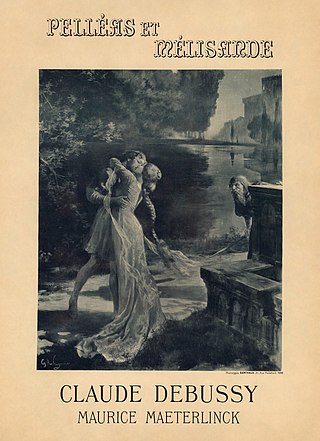
Pelléas et Mélisande is an opera in five acts with music by Claude Debussy. The French libretto was adapted from Maurice Maeterlinck's symbolist play of the same name. It premiered at the Salle Favart in Paris by the Opéra-Comique on 30 April 1902; Jean Périer was Pelléas and Mary Garden was Mélisande, conducted by André Messager, who was instrumental in getting the Opéra-Comique to stage the work. It is the only opera Debussy ever completed.
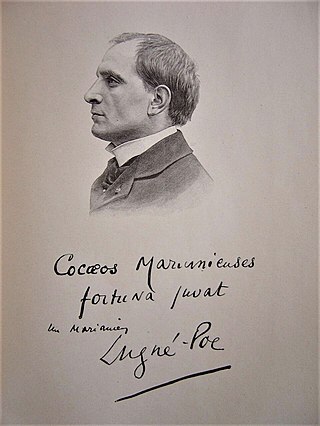
Aurélien-Marie Lugné, known by his stage and pen name Lugné-Poe, was a French actor, theatre director, and scenic designer. He founded the landmark Paris theatre company, the Théâtre de l'Œuvre, which produced experimental work by French Symbolist writers and painters at the end of the nineteenth century. Like his contemporary, theatre pioneer André Antoine, he gave the French premieres of works by the leading Scandinavian playwrights Henrik Ibsen, August Strindberg, and Bjørnstjerne Bjørnson.

Pelléas and Mélisande is a Symbolist play by the Belgian playwright and author Maurice Maeterlinck. The play is about the forbidden, doomed love of the title characters and was first performed in 1893.

Christophe Honoré is a French writer and film and theatre director.
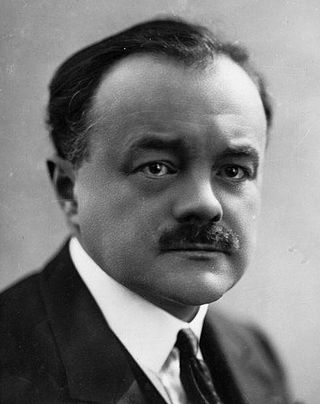
Albert Louis Wolff was a French conductor and composer of Dutch descent. Most of his career was spent in European venues, with the exception of two years that he spent as a conductor at the Metropolitan Opera and a few years in Buenos Aires during the Second World War. He is most known for holding the position of principal conductor with the Opéra-Comique in Paris for several years. He was married to the French mezzo-soprano Simone Ballard.
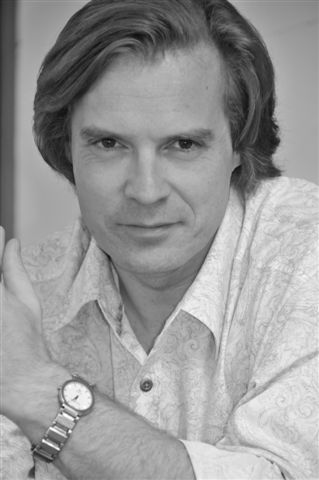
Jean-François Lapointe is a Canadian baritone opera singer.

Ariane et Barbe-bleue is an opera in three acts by Paul Dukas. The French libretto is adapted from the symbolist play of the same name by Maurice Maeterlinck, itself loosely based on the French literary tale La Barbe bleue by Charles Perrault.

Pelléas et Mélisande, Op. 80 is a suite derived from incidental music by Gabriel Fauré for Maurice Maeterlinck's play of the same name. He was the first of four leading composers to write music inspired by Maeterlinck's drama. Debussy, Schoenberg and Sibelius followed in the first decade of the 20th century.
Denise Duval was a French soprano, best known for her performances in the works of Francis Poulenc on stage and in recital. During an international career, Duval created the roles of Thérèse in Les mamelles de Tirésias, Elle in La voix humaine, and excelled in the role of Blanche de la Force in Dialogues of the Carmelites, leaving recordings of these and several other of her main roles.
Jacques Jansen was a French baryton-martin singer, particularly associated with the role of Pelléas in the opera by Debussy, but also active in operetta and on the concert platform, and later as a teacher.

Georgette Leblanc was a French operatic soprano, actress, author, and the sister of novelist Maurice Leblanc. She became particularly associated with the works of Jules Massenet and was an admired interpreter of the title role in Bizet's Carmen.

Stanislas Nordey is a French actor and theatre director. He is the son of actress Véronique Nordey and film director Jean-Pierre Mocky.

The Théâtre de Paris is a theatre located at 15, rue Blanche in the 9th arrondissement of Paris. It includes a second smaller venue, the Petit Théâtre de Paris.

The Théâtre de l'Œuvre is a Paris theatre on the Right Bank, located at 3, Cité Monthiers, entrance 55, rue de Clichy, in the 9° arrondissement. It is commonly conflated and confused with the late-nineteenth-century theater company named Théâtre de l'Œuvre, founded by actor-director-producer Aurélien Lugné-Poe, who would not take control of this performance space until 1919. His company is best known for its earlier phase of existence, before it acquired this theatre venue. From 1893 to 1899, in various Parisian theatres, Lugné-Poe premiered modernist plays by foreign dramatists, as well as new work by French Symbolists, most notoriously Alfred Jarry’s nihilistic farce Ubu Roi, which opened in 1896 at Nouveau-Théâtre.

Sicilienne, Op. 78, is a short work by Gabriel Fauré, composed in 1893. It was originally an orchestral piece, written for a theatrical production that was abandoned. In 1898 Fauré arranged the unperformed music as a work for cello and piano, and in the same year incorporated it into his incidental music for Maurice Maeterlinck's play, Pelléas et Mélisande, in an orchestration for theatre orchestra. It took its final form as part of a suite arranged for full orchestra by Fauré, published in 1909.
Marie-Armelle Deguy is a French actress, the daughter of poet and essayist Michel Deguy.
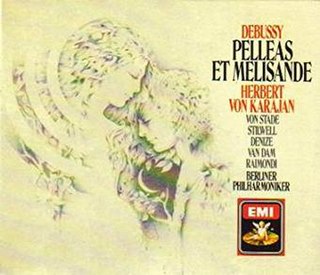
Pelléas et Mélisande is a 162-minute studio album of Claude Debussy's opera, performed by Christine Barbaux, José van Dam, Nadine Denize, Ruggero Raimondi, Frederica von Stade, Richard Stilwell and Pascal Thomas with the Chorus of the German Opera Berlin and the Berlin Philharmonic Orchestra under the direction of Herbert von Karajan. It was released in 1979.
Sarah Defrise is a Belgian soprano born in Brussels, Belgium.















